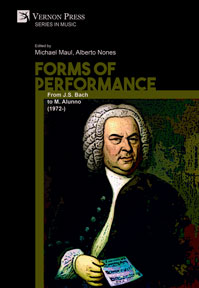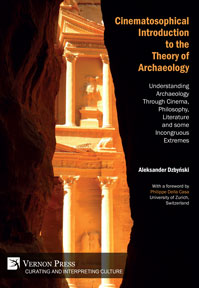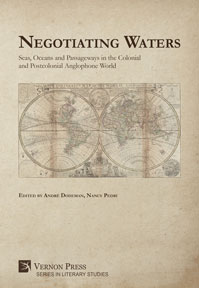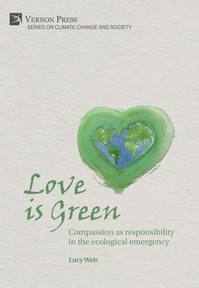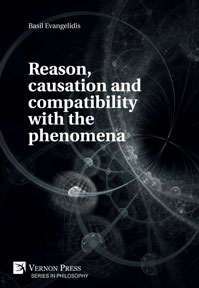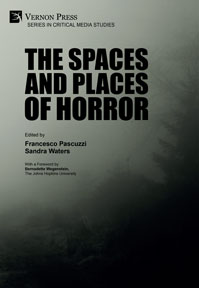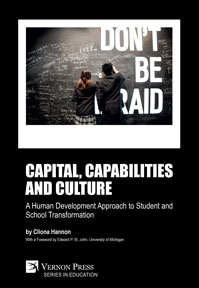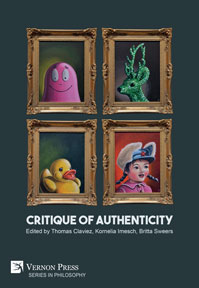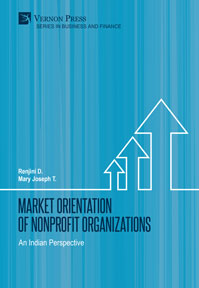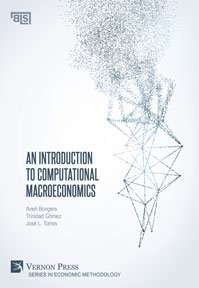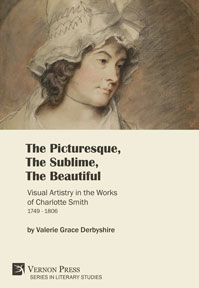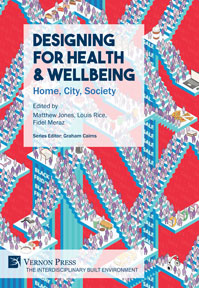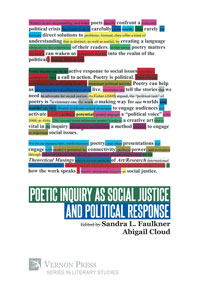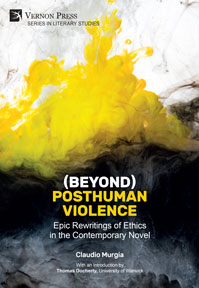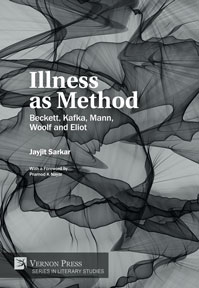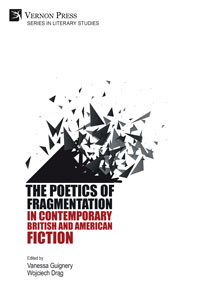Search
Browse
by Publication status
by Subject
Anthropology (28) Art (126) Business and Finance (27) Cognitive Science and Psychology (56) Communication and Journalism (49) Economics (63) Education (70) History (150) Human Geography (22) Interdisciplinary (43) Language and Linguistics (139) Law (16) Music Studies (19) Philosophy (162) Political Science and International Relations (105) Sociology (323) Statistics and Quantitative Methods (21)by Series
Series in Literary Studies (71) Series in Philosophy (59) Series in Education (55) Series in Sociology (46) Bridging Languages and Scholarship (33) Series in Politics (33) Series in World History (32) Series in Language and Linguistics (25) Series in Philosophy of Religion (22) Cognitive Science and Psychology (21) Series in American History (20) Critical Perspectives on Social Science (19) Series in Art (19) Series in Cinema and Culture (16) Series in Critical Media Studies (16) Curating and Interpreting Culture (15) Series in Anthropology (14) Series on the History of Art (14) Economics (14) Series in Business and Finance (13) Series in Music (12) Series in Communication (10) Series in Performing Arts (9) Philosophy of Personalism (8) Series in Law (8) Series on Climate Change and Society (8) Series in Economic Methodology (7) Women's Studies (7) Classics in Economics (6) Series in Economic Development (6) Philosophy of Forgiveness (5) Series in Built Environment (5) Series in Economic History (5) Series in Philosophy of Science (5) Series in Social Equality and Justice (5) Series on the History of Science (4) Serie En Estudios Literarios (3) Serie en Sociología (3) Series in Contemporary History (3) Series in Creative Writing Studies (3) Series in Design (3) The Interdisciplinary Built Environment (3) Serie en Comunicación y Medios (2) Serie en Historia (2) Serie en Música (2) Series in Heritage Studies (2) Series in Innovation Studies (2) Series in Philosophy of Race (2) Serie en Ciencias Políticas (1) Serie en Entorno Construido (1) Serie en Estudios Culturales (1) Serie en Filosofía (1) Serie en Filosofía de la Ciencia (1) Serie sobre Cambio Climático y Sociedad (1) Series in Classical Studies (1) Series in Economics of Technological Change (1) Series in Urban Studies (1)by Language
English Spanishby Author
Forms of Performance: From J.S. Bach to M. Alunno (1972-)
Edited by
Michael Maul, Bach Archive Leipzig, Germany
and Alberto Nones, Conservatory of Music of Gallarate; Associazione Europea di Musica e Comunicazione (AEMC), Italy
Availability: In stock
85pp. ¦ $36 £27 €31
Today, Bach is one of the most revered and studied figures of classical music, despite there being a time in which he was almost forgotten. Divided into two sections, this volume explores research on J.S. Bach and more broadly examines the topics of music and performance studies; with the latter focusing on composers active today, such as Marco Alunno, or those from the recent past who are lesser-known and performed, such as Pietro Cimara and Leo Ornstein. Following from Nones’s (ed.) previous publication Music as Communication: Perspectives on Music, Image and Performance (ABE, 2018), this work provides a rather unique contribution as a choral attempt at exploring performance today. The intention of this book and the downloadable audio content, with live recordings of the music explored at the conference from which the volume originated, is to inspire fresh approaches to the study of a monument like Bach, while also encouraging original research of modern composition and performance. Recordings of the performances given over the two days of the conference serve either to clarify arguments made in the papers or to attest to the music explored more generally. This volume is founded on the belief that the history of music is comprised of many figures, some of whom are undeservedly forgotten, and that our understanding of and approach to music is simultaneously shaped by the past and directed by the continual evolution of sounds and attitudes of the present. Examining music styles from baroque (Bach) to contemporary (Alunno), Forms of Performance will be of particular interest to Bach and performance studies scholars, as well as advanced researchers and PhD students in this field.
Cinematosophical Introduction to the Theory of Archaeology
Understanding Archaeology Through Cinema, Philosophy, Literature and some Incongruous Extremes
Aleksander Dzbyński, University of Zurich, Switzerland
Availability: In stock
314pp. ¦ $52 £39 €45
What is archaeology? A research field dealing with monuments? A science? A branch of philosophy? Dzbyński suggests the simple but thoughtful equation: Archaeology = History = Knowledge. This book consists of 8 chapters presenting a collection of characteristic philosophical attitudes important for archaeology. It discusses the historicity of archaeological sources, the source of the algorithmic approach in archaeological reasoning, and the accuracy of logical and irrational thinking. In general, this book is concerned with the history of archaeologists’ search for a suitable methodology. All these issues are discussed in relation to two main intellectual trends of archaeology to the present day: processual and post-processual archaeology. Processualism introduced and developed the idea of algorithmic and universal reasoning in archaeology, while post-processualism focused attention on the individual value of a monument and the archaeologist himself. These are still two foundations on which the present knowledge of the past is based, and thus their defining role cannot be overestimated. An additional layer of narrative, visible right from the beginning of the book, is the gradual discovery of the relationship between archaeology and popular culture, especially film and literature. Its aim is both illustration and explanation. It is intended that the reader receives not only information and knowledge, but also a deeper emotional reference which is connected with the reception of works of art.
Negotiating Waters: Seas, Oceans, and Passageways in the Colonial and Postcolonial Anglophone World
Edited by
André Dodeman, University of Grenoble Alpes, France
and Nancy Pedri, Memorial University of Newfoundland
Availability: In stock
212pp. ¦ $60 £45 €51
This book examines how seas, oceans, and passageways have shaped and reshaped cultural identities, spurred stories of reunion and separation, and redefined entire nations. It explores how entire communities have crossed seas and oceans, voluntarily or not, to settle in foreign lands and undergone identity, cultural and literary transformations. It also explores how these crossings are represented. The book thus contributes to oceanic studies, a field of study that asks how the seas and oceans have and continue to affect political (narratives of exploration, cartography), international (maritime law), identity (insularity), and literary issues (survival narratives, fishing stories). Divided into three sections, Negotiating Waters explores the management, the crossings, and the re-imaginings of the seas and oceans that played such an important role in the configuration of the colonial and postcolonial world and imagination. In their careful considerations of how water figures prominently in maps, travel journals, diaries, letters, and literary narratives from the 17th century onwards, the three thematic sections come together to shed light on how water, in all of its shapes and forms, has marked lands, nations, and identities. They thus offer readers from different disciplines and with different colonial and postcolonial interests the possibility to investigate and discover new approaches to maritime spaces. By advancing views on how seas and oceans exert power through representation, Negotiating Waters engages in important critical work in an age of rising concern about maritime environments.
Love is Green: Compassion as responsibility in the ecological emergency
July 2019 / ISBN: 978-1-62273-372-9Availability: In stock
244pp. ¦ $61 £46 €52
This book links three themes, non-dualistic agency, ‘the good’ of systems, and compassionate attunement, and relates them to the ecological emergency. The author begins by examining how we currently understand our ability to choose what we do, our agency and conclude that this is dualistic: we think of an action to do, and then we physically act. Yet an understanding that we are enmeshed in context means our capacity to act freely dissolves in the mesh. We evolved capacities for consciousness and awareness, capacities that allow us to realise that we are here, now but that do not inevitably imply choice. Our capacity for ‘realisation’ gives us the ability to elicit an emotional response. When we understand our enmeshment, we can attune to a deep compassion for ourselves and indeed for all systems unfolding through time. Compassionate attunement allows a different set of options for action to become available to us. This then shifts how we respond to ourselves, our human relationships and to the ecological emergency we are currently embroiled in. This work is inspired by the great Kamakura Zen Master Eihei Dōgen. The book’s contribution is to extend and link the notion of practice-realisation with the literature on evolutionary biology and entropy maximisation which allows us to speak of ‘the good’ of systems. Systems unfold as ‘good’ for us when biodiversity maximisation occurs. By considering the ecological emergency in light of compassionate attunement, we open ourselves to a new array of possibilities for action. Some of these the author outlines in the conclusion, relating them to existing literature on compassionate achievement and compassionate communication, to show how our this practice shifts our relationship to ourselves, to one another, and to the ecological emergency, thus changing the course of human history.
Reason, causation and compatibility with the phenomena
June 2019 / ISBN: 978-1-62273-755-0Availability: In stock
207pp. ¦ $60 £45 €51
'Reason, Causation and Compatibility with the Phenomena' strives to give answers to the philosophical problem of the interplay between realism, explanation and experience. This book is a compilation of essays that recollect significant conceptions of rival terms such as determinism and freedom, reason and appearance, power and knowledge. This title discusses the progress made in epistemology and natural philosophy, especially the steps that led from the ancient theory of atomism to the modern quantum theory, and from mathematization to analytic philosophy. Moreover, it provides possible gateways from modern deadlocks of theory either through approaches to consciousness or through historical critique of intellectual authorities. This work will be of interest to those either researching or studying in colleges and universities, especially in the departments of philosophy, history of science, philosophy of science, philosophy of physics and quantum mechanics, history of ideas and culture. Greek and Latin Literature students and instructors may also find this book to be both a fascinating and valuable point of reference.
The Spaces and Places of Horror
Edited by
Francesco Pascuzzi, Rutgers University
and Sandra Waters, Rutgers University
Availability: In stock
299pp. ¦ $64 £48 €55
This volume explores the complex horizon of landscapes in horror film culture to better understand the use that the genre makes of settings, locations, spaces, and places, be they physical, imagined, or altogether imaginary. In The Philosophy of Horror, Noël Carroll discusses the “geography” of horror as often situating the filmic genre in liminal spaces as a means to displace the narrative away from commonly accepted social structures: this use of space is meant to trigger the audience’s innate fear of the unknown. This notion recalls Freud’s theorization of the uncanny, as it is centered on recognizable locations outside of the Lacanian symbolic order. In some instances, a location may act as one of the describing characteristics of evil itself: In A Nightmare on Elm Street teenagers fall asleep only to be dragged from their bedrooms into Freddy Krueger’s labyrinthine lair, an inescapable boiler room that enhances Freddie’s powers and makes him invincible. In other scenarios, the action may take place in a distant, little-known country to isolate characters (Roth’s Hostel films), or as a way to mythicize the very origin of evil (Bava’s Black Sunday). Finally, anxieties related to the encroaching presence of technology in our lives may give rise to postmodern narratives of loneliness and disconnect at the crossing between virtual and real places: in Kurosawa’s Pulse, the internet acts as a gateway between the living and spirit worlds, creating an oneiric realm where the living vanish and ghosts move to replace them. This suggestive topic begs to be further investigated; this volume represents a crucial addition to the scholarship on horror film culture by adopting a transnational, comparative approach to the analysis of formal and narrative concerns specific to the genre by considering some of the most popular titles in horror film culture alongside lesser-known works for which this anthology represents the first piece of relevant scholarship.
Post-Industrial Precarity: New Ethnographies of Urban Lives in Uncertain Times
Edited by
Gillian Evans, University of Manchester
Availability: In stock
240pp. [Color] ¦ $89 £66 €75
The United Nations predicts that by the year 2050 almost 70% of the planet’s population will be living in cities. The onus on social scientists is to explain the contemporary challenges posed by the urbanization of the world. A growing body of literature raises the alarm about the precarity of human existence in the uncertain conditions of rapidly transforming contemporary cities. This volume brings together a diverse collection of new ethnographies of precarious lives in various cities of the world. The specific focus on post-industrial cities in the UK allows for a wider consideration of the urban conditions and the political and economic climates which combine to produce extremely precarious living conditions for urban populations elsewhere in the world.The productive consequence of the comparisons and contrasts of various urban contexts, made possible by the volume, is an analytical focus on what it means for humans to live and occupy different subject positions under the advancing conditions of contemporary global capitalism. The volume’s chapters are also united by the shared commitment of early career social science scholars to ethnography as a research method. This gives a common methodological focus to diverse topics of substantive concern located in various cities of the world from Manchester, Newcastle and Salford in the north of England, to Detroit in the USA, Rio de Janeiro in Brazil, Turin in Italy and Beirut in Lebanon. Ethnography, relying as it does on long-term participant observation and in-depth open-ended interviewing, is uniquely valuable as a resource for bringing to life the unpredictable ways in which humans survive and develop forms of resilience among, for example, the ruins of dying cities. Ethnography also enables social scientists to understand and add depth to the surprising stories and apparent contradictions of everyday protest in the face of the increasing privatization of the public good and extreme inequalities of wealth. Ethnographically grounded analyses of urban life are therefore uniquely positioned to explain and critically analyse the new politics of popular resistance as the people who feel ‘left behind’ by society, or expelled from what might be described as the ‘exclusification’ of urban environments, push back against an economy and politics that appears to exist only for the private benefit of an indifferent elite population.
Post-Industrial Precarity: New Ethnographies of Urban Lives in Uncertain Times
Edited by
Gillian Evans, University of Manchester
Availability: In stock
240pp. ¦ $59 £44 €50
The United Nations predicts that by the year 2050 almost 70% of the planet’s population will be living in cities. The onus on social scientists is to explain the contemporary challenges posed by the urbanization of the world. A growing body of literature raises the alarm about the precarity of human existence in the uncertain conditions of rapidly transforming contemporary cities. This volume brings together a diverse collection of new ethnographies of precarious lives in various cities of the world. The specific focus on post-industrial cities in the UK allows for a wider consideration of the urban conditions and the political and economic climates which combine to produce extremely precarious living conditions for urban populations elsewhere in the world.The productive consequence of the comparisons and contrasts of various urban contexts, made possible by the volume, is an analytical focus on what it means for humans to live and occupy different subject positions under the advancing conditions of contemporary global capitalism. The volume’s chapters are also united by the shared commitment of early career social science scholars to ethnography as a research method. This gives a common methodological focus to diverse topics of substantive concern located in various cities of the world from Manchester, Newcastle and Salford in the north of England, to Detroit in the USA, Rio de Janeiro in Brazil, Turin in Italy and Beirut in Lebanon. Ethnography, relying as it does on long-term participant observation and in-depth open-ended interviewing, is uniquely valuable as a resource for bringing to life the unpredictable ways in which humans survive and develop forms of resilience among, for example, the ruins of dying cities. Ethnography also enables social scientists to understand and add depth to the surprising stories and apparent contradictions of everyday protest in the face of the increasing privatization of the public good and extreme inequalities of wealth. Ethnographically grounded analyses of urban life are therefore uniquely positioned to explain and critically analyse the new politics of popular resistance as the people who feel ‘left behind’ by society, or expelled from what might be described as the ‘exclusification’ of urban environments, push back against an economy and politics that appears to exist only for the private benefit of an indifferent elite population.
Maximizing Mental Health Services: Proven Practices that Promote Emotional Well-Being
Nicholas D. Young, American International College
et al.
Availability: In stock
152pp. ¦ $43 £32 €36
'Maximizing Mental Health Services: Evidence-Based Practices that Promote Emotional Well-Being' examines best therapeutic practices for patients, therapists, graduate professors, family members and all who struggle to find the most effective treatment modalities for those dealing with mental health challenges. Mental health issues are rising at an alarming rate, while positive therapeutic outcomes have not kept pace and remain low for many conditions, making an investigation of evidence-based treatment options critically important to the helping profession. While certain types of therapy bring success to specific clients, these modalities cannot be easily applied to all client profiles. Understanding the strengths of each modality and how to match them to the respective needs of the client will be emphasized. Furthermore, the impact of counselors’ own traits on the client-therapist relationship is an important and often overlooked topic that will be explored. Therapy practices have changed over the past decade to include non-traditional options; therefore, the authors investigate the ways in which these practices have either helped or hindered patient success. Lastly, the book offers readers information on resources for further information on the evidence-based practices presented within.
Leonora Carrington: Living Legacies
Edited by
Ailsa Cox, Edge Hill University et al.
Availability: In stock
244pp. ¦ $61 £46 €52
The English born artist and writer Leonora Carrington (1917–2011) has received much critical acclaim and achieved stellar status in Mexico, where she lived and worked for most of her life, having fled Europe via Spain in tormenting circumstances. Leonora Carrington: Living Legacies brings together a collection of chapters that constitute a range of artistic, scholarly and creative responses to the realm of Carrington emphasizing how her work becomes a medium, a milieu, and a provocation for new thinking, being and imagining in the world. The diversity of contributions from scholars, early career researchers, and artists, include unpublished papers, interviews, creative provocations, and writing from practice-led interventions. Collectively they explore, question, and enable new ways of thinking with Carrington’s legacy. Wishing to expand on recent important scholarly publications by established Carrington researchers which have brought historical and international significance to the artist’s legacy, this volume offers new perspectives on the artist’s relevance in feminist thinking and artistic methodologies. Conscious of Carrington’s reluctance to engage in critical analysis of her artwork we have approached this scholarly task through a lens of give and return that the artist herself musingly articulates in her 1965 mock-manifesto Jezzamathatics: “I was decubing the root of a Hyperbollick Symposium … when the latent metamorphosis blurted the great unexpected shriek into something between a squeak and a smile. IT GAVE, so to speak, in order to return.” (Aberth, 2010:149). In adopting her playful conjecture, this publication seeks to bring Carrington and her work to further prominence.
Capital, capabilities and culture: a human development approach to student and school transformation
Cliona Hannon, The University of Dublin
Availability: In stock
322pp. ¦ $64 £48 €55
This book applies the capability approach as an evaluative lens through which to explore the range of capabilities that emerged over a three-year period, through the Trinity Access 21 – College for Every Student (TA21-CFES) higher education access project in four schools. Qualitative analysis is presented from a longitudinal study of four schools over a three-year period, drawing on data from four student focus groups involving 21 student participants and 14 individual student interviews. An additional sixteen school personnel contributed in interviews. There are three main findings: first, specific student capabilities emerge because of their engagement in the TA21-CFES core practices of Leadership, Mentoring and Pathways to College. These are: autonomy, practical reason/college knowledge, identity, social relations and networks and hope. Second, students encounter a range of inhibiting social conversion factors in developing capabilities and persisting with higher education aspirations. These are: the negative pull of peer relations; pressure related to the Junior Certificate; limited subject choice and conflicting family expectations. Third, it is the combination of their own emerging capability set along with a network of trusted relationships with others that enables them to overcome potentially corrosive disadvantage and translate their experiences into fertile functionings. It is proposed that these findings have national and international relevance for widening participation interventions. The research makes a methodological contribution as it is the first use of qualitative longitudinal research (QLR) in Ireland within a ‘lived’ project aimed at working-class students over a three-year period. It contributes empirically as it provides new knowledge about the impact of interventions aimed at developing students’ capability set and how these might help them to develop navigational capital and post-secondary educational aspirations. It also makes a conceptual contribution to how we frame the design and evaluation of impact of widening participation initiatives, as it takes a capability approach to considering how students develop higher education aspirations over time, towards what they consider ‘a life of value’. It is useful to researchers, practitioners and policy makers who are interested in taking an evidence-based approach to developing higher education access programmes.
Critique of Authenticity
Edited by
Thomas Claviez, University of Bern, Switzerland et al.
Availability: In stock
329pp. ¦ $67 £50 €57
The volume provides a critical assessment of the concept of authenticity and gauges its role, significance and shortcomings in a variety of disciplinary contexts. Many of the contributions communicate with each other and thus acknowledge the enormous significance of this politically, morally, philosophically and economically-charged concept that at the same time harbors dangerous implications and has been critically deconstructed. The volume shows that the alleged need or desire for authenticity is alive and kicking but oftentimes comes at a high price, connected to a culture of experts, authority and exclusionary strategies.
Market Orientation of Nonprofit Organizations: An Indian Perspective
Renjini D., Cochin University of Science and Technology, India
and Mary Joseph T., Cochin University of Science and Technology, India
Availability: In stock
135pp. ¦ $34 £25 €29
This book is an insightful account on market orientation and how it enhances the performance of non-profit organizations in India. The book provides the readers with a succinct, yet comprehensive view of scholarly research on the concepts of market orientation, non-profit marketing, and organizational performance of non-profit organizations and demonstrates why and how market orientation can be an effective organizational orientation for Indian non-profit organizations. Despite the growing importance of non-profit sector in socio-economic well-being of societies, academic debate and research in developing economy context in this field is glaringly sparse. This book attempts to addresses this gap in literature by analyzing market orientation and related concepts against the background of environmental conditions in a typical emerging economy context. Therefore, it will be especially beneficial to academics, researchers, students and practitioners in the fields of non-profit management, strategic marketing and social work, desirous of advancing their knowledge in nonprofit market orientation in these settings.
An Introduction to Computational Macroeconomics
Anelí Bongers, Universidad de Málaga, Spain
et al.
Availability: In stock
320pp. ¦ $65 £49 €55
This book presents an introduction to computational macroeconomics, using a new approach to the study of dynamic macroeconomic models. It solves a variety of models in discrete time numerically, using a Microsoft Excel spreadsheet as a computer tool. The solved models include dynamic macroeconomic models with rational expectations, both non-microfounded and microfounded, constituting a novel approach that facilitates the learning and use of dynamic general equilibrium models, which have now become the principal tool for macroeconomic analysis. Spreadsheets are widely known and relatively easy to use, meaning that the computer skills needed to work with dynamic general equilibrium models are affordable for undergraduate students in Advanced Macroeconomics courses.
The Picturesque, The Sublime, The Beautiful: Visual Artistry in the Works of Charlotte Smith (1749-1806)
Valerie Derbyshire, University of Sheffield
Availability: In stock
316pp. ¦ $63 £48 €54
This book considers the relationships between British Romantic-era novelist, poet and writer of educational works for children, Charlotte Smith (1749-1806), and a number of visual artists of the eighteenth century with whom she had connections. By exploring these associations with artists such as George Smith of Chichester, George Romney, James Northcote, John Raphael Smith and Emma Smith, the book demonstrates how the artwork of these individual artists influenced Charlotte Smith’s literary corpus. It also shows a mutual influence: how the literary works of Charlotte Smith impacted the corpora of these artists. This study uncovers information which was not heretofore known regarding these artists: it reveals a mistaken attribution of a sketch which accompanied the second volume of Smith’s Elegiac Sonnets (1797) and sheds light on a print, held by the British Museum, which was previously shrouded in mystery. The artworks also enhance the existing scholarly knowledge about Smith’s biography. This book analyses the tropes and motifs employed by Smith’s artist-associates in the context of the popular aesthetics of the period and undertakes parallel readings between such visual artistry and Smith’s literary works. The book deliberates on how Smith utilises these aesthetics as narrative devices, making use of the tropes of the picturesque, the sublime and the beautiful, as well as that of a national British heraldic artwork, in order to produce and enhance meaning in her literary oeuvre. Thus, Smith uses aesthetic structures as vehicles for social critique, commentating on political, gender, moral and class concerns in addition to enhancing the perceived authenticity of her own artistry. The scholarship aims to correct the common misperception that Smith was a lonely marginal figure of Romanticism and instead asserts her central position in an enormous network of key artistic figures of British Romanticism.
Designing for Health & Wellbeing: Home, City, Society
Edited by
Matthew Jones, Birmingham City University et al.
Availability: In stock
290pp. ¦ $63 £47 €54
Rapid urbanization represents major threats and challenges to personal and public health. The World Health Organisation identifies the ‘urban health threat’ as three-fold: infectious diseases, non-communicable diseases; and violence and injury from, amongst other things, road traffic. Within this tripartite structure of health issues in the built environment, there are multiple individual issues affecting both the developed and the developing worlds and the global north and south. Reflecting on a broad set of interrelated concerns about health and the design of the places we inhabit, this book seeks to better understand the interconnectedness and potential solutions to the problems associated with health and the built environment. Divided into three key themes: home, city, and society, each section presents a number of research chapters that explore global processes, transformative praxis and emergent trends in architecture, urban design and healthy city research. Drawing together practicing architects, academics, scholars, public health professional and activists from around the world to provide perspectives on design for health, this book includes emerging research on: healthy homes, walkable cities, design for ageing, dementia and the built environment, health equality and urban poverty, community health services, neighbourhood support and wellbeing, urban sanitation and communicable disease, the role of transport infrastructures and government policy, and the cost implications of ‘unhealthy’ cities etc. To that end, this book examines alternative and radical ways of practicing architecture and the re-imagining of the profession of architecture through a lens of human health.
Poetic Inquiry as Social Justice and Political Response
Edited by
Sandra L. Faulkner, Bowling Green State University, USA
and Abigail Cloud, Bowling Green State University, USA
Availability: In stock
266pp. ¦ $59 £44 €50
This volume speaks to the use of poetry in critical qualitative research and practice focused on social justice. In this collection, poetry is a response, a call to action, agitation, and a frame for future social justice work. The authors engage with poetry’s potential for connectivity, political power, and evocation through methodological, theoretical, performative, and empirical work. The poet-researchers consider questions of how poetry and Poetic Inquiry can be a response to political and social events, be used as a pedagogical tool to critique inequitable social structures, and how Poetic Inquiry speaks to our local identities and politics. The authors answer the question: “What spaces can poetry create for dialogue about critical awareness, social justice, and re-visioning of social, cultural, and political worlds?” This volume adds to the growing body of Poetic Inquiry through the demonstration of poetry as political action, response, and reflective practice. We hope this collection inspires you to write and engage with political poetry to realize the power of poetry as political action, response, and reflective practice.
(Beyond) Posthuman Violence: Epic Rewritings of Ethics in the Contemporary Novel
Claudio Murgia, University of Warwick
Availability: In stock
220pp. ¦ $60 £45 €51
Neuroscience tells us that the brain is nothing but a metaphor machine capable of extracting meaning from a chaotic reality. Following Agamben, Arendt, Benjamin and Žižek, a theory of violence can be established according to which violence is a reaction on the part of the individual to the frustration generated by having her metaphor machine suppressed by the mythic narrative of the Law. In opposition to mythic violence, Benjamin posits the justice of divine violence. Divine justice is an excess of life, the very uniqueness of the metaphor machine. The individual is affected by a difficulty to communicate her metaphor machine to the Other, as if it were inexpressible. This work explores how the characters in the works of David Foster Wallace, Cormac MacCarthy, J. G. Ballard, Bret Easton Ellis, Chuck Palahniuk, William Gibson, Neal Stephenson, Maurice G. Dantec and China Mieville suffer from these limits of language and the constrictions of the Law. Through violence they look for their individual Voice, intended as their will-to-say, the ‘pure taking place of language’ (Agamben). In their struggle to be heard these characters are however deaf to the Voice of the Other. There is a need for a new Ethics of Narratives expressed through an Epic of the Voice founded on the will-to-listen, along the lines of the concept of the posthuman theorized by Rosi Braidotti. Here subjectivity is a process of constant autopoiesis dependent on the relationship the individual has with the Other and the environment around her, that is, in the reciprocal will-to-say and will-to-listen. Human beings can meet in the taking-place of language, in the place before the suppressive language of the Law is even born, in a meeting of Voices.
Illness as Method: Beckett, Kafka, Mann, Woolf and Eliot
Jayjit Sarkar, Raiganj University, India
Availability: In stock
116pp. ¦ $39 £29 €33
This work questions the problematic connections between illness and modernity: the complicated negotiations involving the body both in its physicality and phenomenology and the poetics and praxiality of illness. The project, which is predominantly conceptual in nature, for it does not see illness solely as a clinical-physical category (leaning heavily on the medical sciences), but rather perspectivizes its phenomenology and pathographical limits and manifestations, lateralizing on its critical correspondences with a selection of modernist texts ranging from Virginia Woolf to Samuel Beckett. The book unearths different ‘possibilities’ of illness without denying its (quite natural) association with morbidity, pain, suffering, dying and death. It looks at illness and its effects on different bodies phenomenologically with the help of some twentieth-century philosophers, including Martin Heidegger, Jean Luc-Nancy, Maurice Merleau-Ponty, Jean-Paul Sartre and Emmanuel Levinas. The book locates these phenomenological understandings in a reading of some of the important literary works of early twentieth-century Europe — five literary works from five different genres (poetry, drama, fiction, non-fiction and epistle) — critiquing the relevance of the phenomenological body in the literary and narrative world of the texts. The author deals with Samuel Beckett’s Endgame, Franz Kafka’s letters, Thomas Mann’s Death in Venice, Virginia Woolf’s On Being Ill and T. S. Eliot’s The Wasteland within the aesthetico-philosophical space and the epistemic dialogism that modernist aesthetics implies and espouses.
The Poetics of Fragmentation in Contemporary British and American Fiction
Edited by
Vanessa Guignery, École Normale Supérieure de Lyon, France
and Wojciech Drąg, University of Wrocław, Poland
Availability: In stock
252pp. ¦ $61 £46 €52
The last decades have seen a revival of fragmentation in British and American works of fiction that deny linearity, coherence and continuity in favour of disruption, gaps and fissures. Authors such as Ali Smith, David Mitchell and David Shields have sought new ways of representing our global, media-saturated contemporary experience which differ from modernist and postmodernist experimentations from which the writers nevertheless draw inspiration. This volume aims to investigate some of the most important contributions to fragmentary literature from British and American writers since the 1990s, with a particular emphasis on texts released in the twenty-first century. The chapters within examine whether contemporary forms of literary fragmentation constitute a return to the modernist episteme or the fragmented literature of exhaustion of the 1960s, mark a continuity with postmodernist aesthetics or signal a deviation from past models and an attempt to reflect today’s accelerated culture of social media and over-communication. Contributors theorise and classify literary fragments, examine the relationship between fragmentation and the Zeitgeist (influenced by globalisation, media saturation and social networks), analyse the mechanics of multimodal and multimedial fictions, and consider the capacity of literary fragmentation to represent personal or collective trauma and to address ethical concerns. They also investigate the ways in which the architecture of the printed book is destabilised and how aesthetic processes involving fragmentation, bricolage and/or collage raise ontological, ethical and epistemological questions about the globalised contemporary world we live in and its relation to the self and the other. Besides the aforementioned authors, the volume makes reference to the works of J. G. Ballard, Julian Barnes, Mark Z. Danielewski, David Markson, Jonathan Safran Foer, David Foster Wallace, Jeanette Winterson and several others.

